EU: We’ve spent €88m to support Nigeria’s anti-corruption efforts since 2005
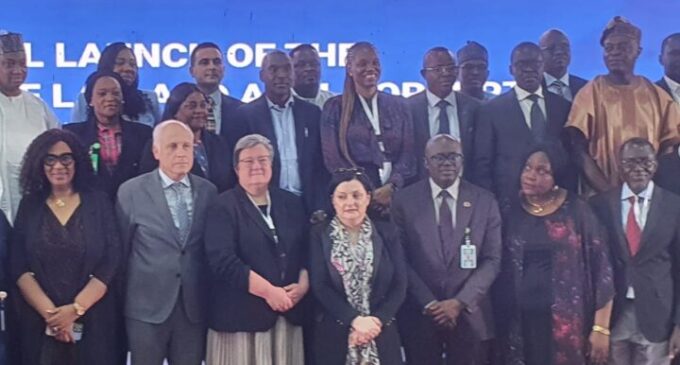
The European Union (EU) says it has spent €88 million to support Nigeria in the fight against corruption since 2005.
Samuela Isopi, EU ambassador and head of delegation to Nigeria and the Economic Community of West African States (ECOWAS), spoke on Monday at the launch of the rule of law and anti-corruption (ROLAC Phase II) programme.
Isopi said the fight against corruption is a priority for the EU’s engagement with partner countries.
“Corruption is a challenge in Nigeria, and indeed in many countries of the world, as it undermines good governance and human rights, and contributes to poverty,” Isopi said.
“It is proven that corruption undermines the foundations of democratic institutions and represents a major barrier to social and economic growth.
“Corruption weakens the trust of citizens in democratic institutions and indeed threatens stability. It varies in nature and extent, but it affects all countries.
“The fight against corruption is therefore a fundamental part of the EU agenda, internally and externally, and is a priority in our engagement with partner countries.
“The new administration has identified the fight against corruption as one of its priorities. This will be vital for the economic and political future of the nation.”
As part of the EU’s continued support in the anti-graft war, Isopi announced an additional € 30 million in funding for the second phase of the ROLAC programme.
The ambassador said 1.5 million Nigerians were impacted in the first phase of the programme.
She added that the second phase would run for five years and would be implemented in Adamawa, Anambra, Edo, Kano, Lagos, and the federal capital territory (FCT), with the possibility of extension to two more states.
She noted that the programme is aimed at supporting the strengthening of the rule of law and the fight against corruption as well as reducing gender-based violence, promoting respect for human rights and ensuring inclusivity for all Nigerians.
According to the ambassador, achievements of the first phase of the programme include setting up and strengthening policies and processes; and increased implementation and compliance with the administration of criminal justice law.
Others are increased inter-agency cooperation in the fight against corruption and creating synergies between government and civil society organisations; increased access to justice for survivors of sexual and gender-based violence (GBV), through the establishment of sexual assault referral centres and special GBV courts as well as improved protection of the rights of children.
Isopi added that the second phase of the program will focus on criminal justice, prison reform, curbing sexual and gender-based violence as well as strengthening and implementing anti-corruption policies and tools.
The programme is implemented by the International Institute for Democracy and Electoral Assistance (International IDEA) and funded by the EU.
NIGERIA’S STRUGGLE WITH CORRUPTION
A 2021 corruption perception index published by Transparency International (TI) in 2022 showed that Nigeria scored 24 out of 100 points — ranking 154 out of 180 countries.
In the 2020 index, Nigeria scored 25 out of 100 points, ranking 149 out of the 180 countries surveyed.
The development meant that Nigeria dropped to 154 — five places down — out of the 180 countries surveyed, in comparison with the 2020 rating. The rating was the worst ranking the country got under the administration of former President Muhammadu Buhari.
In 2015, Nigeria was ranked 136th; 136th in 2016; 148th in 2017; 144th in 2018; 146th in 2019, and 149th in 2020.
However, last year, although the country maintained its previous-year rating scoring 24 out of 100 points, Nigeria moved up four places on the rank, sitting at the 15oth spot out of 180 countries.







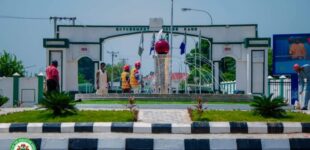

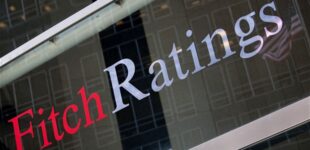
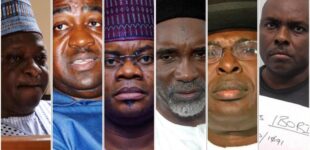
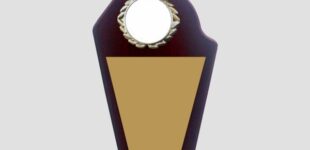
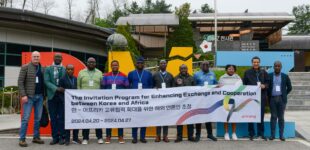

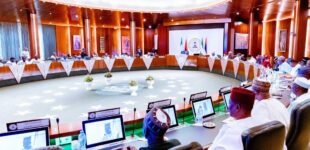

There are no comments at the moment, do you want to add one?
Write a comment